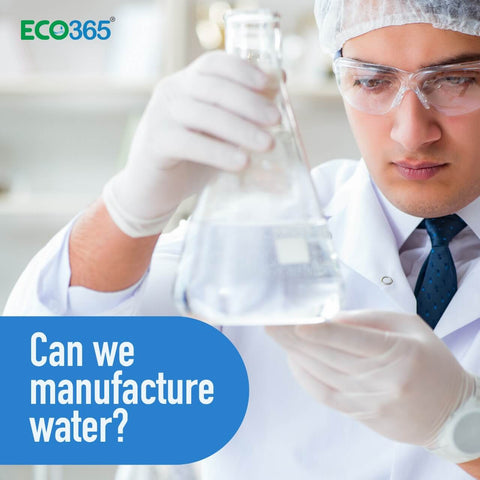Our global water supply is becoming more of an issue every day. Even in developed nations, where there is plentiful supply of water it is sometimes taken for granted, the value of water is increasing among the people and their governments.

Experts have already found that we can't manufacture water, so what exactly will happen if we run out? It's ironic that on a planet that is 70 percent water, people don't have enough clean, safe water to drink. But the freshwater on Earth makes up just three percent of the water supply. And less than one percent is freely available; the rest is tied up in ice, as in icebergs, glaciers, and snowcaps. This means that all of the rivers, streams, lakes, aquifers and groundwater expected to sustain the 6,602,224,175 people on Earth make up less than one percent of the total water on the planet.This is important, because the planet is in the midst of what the United Nations is calling a "water crisis."

The problem is that most of the Earth’s water resources are as inaccessible as if they were on Mars, and those that are accessible are unevenly distributed across the planet. Water is hard to transport over long distances, and our needs are growing, both for food and industry. Everything we do requires water, for drinking, washing, growing food, and for industry, construction and manufacturing. With more than 7.5 billion people on the planet, and the population projected to top 10 billion by 2050, the situation is set to grow more urgent.

Agriculture will need to adapt to increasing demands from other water users and shifting climate patterns. Agriculture is by far the largest user (in both withdrawal and consumptive terms) around the world. Currently, much agricultural production around the world relies on the unsustainable use of groundwater aquifers. These crops will likely need to be grown somewhere else when these groundwater reserves are no longer economically accessible.This means that supply chains of all kinds—but particularly of water-intensive goods—will need to reorganize to account for water risk. Water risk encompasses long term depletion of local water resources and water hazards (e.g. drought, flood) that impact production throughout the supply chain. Water risk may also impact the ability to transport goods in a supply chain, such as flooding or drought that disrupts river navigation.

Water demand globally is projected to increase by 55% between 2000 and 2050. Much of the demand is driven by agriculture, which accounts for 70% of global freshwater use, and food production will need to grow by 69% by 2035 to feed the growing population. Water withdrawal for energy, used for cooling power stations, is also expected to increase by over 20%. In other words, the near future presents one big freshwater drain after the next.What’s more? Right now, according to a Nasa-led study, many of the world’s freshwater sources are being drained faster than they are being replenished.Of the world’s major aquifers (gravel and sand-filled underground reservoirs), 21 out of 37 are receding, from India and China to the United States and France. The Ganges Basin in India is depleting, due to population and irrigation demands, by an estimated 6.31 centimeters every year. Jay Famiglietti, senior water scientist at Nasa, has warned that “the water table is dropping all over the world. There’s not an infinite supply of water.”

Water scarcity threatens ecosystems worldwide. More than half of the Earth's wetlands have dried up or been destroyed. Wetlands are home to a diverse array of animal and plant life. They often act as nurseries for birds and fish, so their disappearance has had a significant effect on several species. Other ecosystems, and the species they support, have been negatively affected by drought. People rely on nature as a food source, as well as a source of income from hunting, tourism and other recreational activities. Water conservation helps preserve various ecosystems and the animals (including people) that rely on them.





Leave a comment